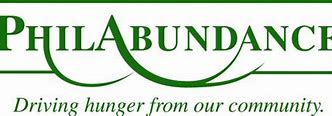STAY DENIED: Governor Wolf’s request for a motion to stay has been DENIED by Judge Stickman
DEP Collects $736,000 from TransCo for Atlantic Sunrise Pipeline Violations
Harrisburg, PA – The Pennsylvania Department of Environmental Protection (DEP) has announced that it has collected a civil penalty of $736,294.11 from Transcontinental Gas Pipe Line Company, LLC (Transco) for violations associated with the construction of the Atlantic Sunrise Pipeline in Columbia, Lancaster, Lebanon, Luzerne, Lycoming, Northumberland, Schuylkill, Susquehanna, and Wyoming counties. The penalty was part of a Consent Assessment of Civil Penalty (CACP) entered into between DEP and Transco. DEP will collect $680,000 of the civil penalty, and the remaining penalty, $56,294.11, will be distributed among the county conservation districts that inspected the Atlantic Sunrise Pipeline during its construction to reimburse the costs they incurred during their inspections.
“Impacts from construction activities that harm or have the potential to harm waters of the Commonwealth are unacceptable, and we will continue hold operators accountable,” said DEP Secretary Patrick McDonnell.
The violations included failure to properly maintain erosion and sedimentation best management practices, inadvertent returns of drilling fluids at drilling sites in Lebanon, Luzerne, and Wyoming counties, and sediment discharge into waters of the Commonwealth. Full details are available in the CACP.
In addition to the civil penalty, Transco will provide $100,000 to the Shamokin Creek Restoration Alliance to fund two water quality improvement projects in the Shamokin Creek watershed along Quaker Run and Buck Run in the Borough of Kulpmont in Northumberland County.
The full CACP is here http://files.dep.state.pa.us/ProgramIntegration/PA%20Pipeline%20Portal/AtlanticSunrise/2020-09-02_CACP2020-8-13Exhibits.pdf
PA High Schools Compete in Voter Registration Challenge
Harrisburg, PA – In celebration of National Voter Registration Day, Secretary of State Kathy Boockvar reminded Pennsylvanians that the fourth annual Governor’s Civic Engagement Award (GCEA) Program for high schools is underway. The program promotes student-led voter registration efforts and recognizes schools that register at least 65 percent of their eligible students.
“The Pennsylvania Department of State is proud to be part of this innovative, nonpartisan program, which teaches young people civics and cultivates the lifelong habit of voting. By inspiring their peers to register, vote, and serve as poll workers, they become invested in our democracy,” Secretary Boockvar said. “A presidential election year presents an ideal teaching opportunity. I urge educators to enroll their schools in the program as soon as possible so they can get the voter registration toolkit early and receive valuable updates throughout the school year.”
Schools that register at least 85 percent of their eligible students earn a Gold Level Award, while schools that register 65 percent or more of their eligible students earn a Silver Level Award. To be eligible to register to vote, a student must be a U.S. citizen and 18 years of age, or turn 18 on or before the date of the next primary, special, municipal or general election.
Participating schools will have two voter registration opportunities this school year – for the November general election and the 2021 primary next May. The deadline to apply for a GCEA for the 2020-21 school year is May 5, 2021. Recognition events will be held in May to honor the winning schools and students.
The GCEA program is a cooperative effort by the Departments of State and Education. It offers student leaders resources on voter registration and educates them about the electoral process and the importance of civic engagement.
“Voting is the foundation of the democratic process and allows our citizens to express their viewpoints,” said Education Secretary Pedro A. Rivera. “As students learn about the Voting Rights Act and the struggles to protect and uphold these rights, we encourage them to take the next step and register to vote through this important initiative.”
The GCEA program has grown in popularity. In its inaugural year, 16 high schools won awards. The second year, 23 schools won awards and eight student poll workers earned individual recognition. Last year, 43 schools won awards and 13 student poll workers were recognized.
The Department of State recently hosted a kickoff webinar for the 2020-21 GCEA program. New this year is a Student Showcase on the department’s website, where participating schools can share creative approaches they have employed to encourage voter registration and recruit new poll workers.
September Is National Voter Registration Month
In 2002, the National Association of Secretaries of State (NASS) established National Voter Registration Month in September as a non-partisan means of encouraging voter participation and increasing awareness of state voting requirements and deadlines.
National Voter Registration Day, launched in 2012 by a coalition of nonprofit and voter advocacy organizations and supported by NASS, is held this year on Tuesday, Sept. 22.
Pennsylvanians wishing to register to vote must be:
- A citizen of the United States for at least one month before the election;
- A resident of Pennsylvania and the election district in which the individual desires to register and vote for at least 30 days before the election, and
- At least 18 years of age on or before the date of the election.
October 19 is Pennsylvania’s deadline to register to vote in the November 3 election. The deadline to apply for a mail-in ballot is 5 p.m. on October 2, but voters should not wait; they should apply today and submit their ballot as soon as they receive it.
The Department of State’s votesPA.com website offers a Ready to Vote toolkit and Resource Center where Pennsylvanians can find:
- a polling place locator
- contact information for county boards of election
- video demonstrations of the voting systems in use in each county
- voter registration forms
- information on mail-in and absentee voting
- a guide to running a voter registration drive
- printer-friendly voter education materials and lots more information.
For more information on voter registration, call the Department of State’s toll-free hotline at 1-877-VOTESPA (1-877-868-3772) or visit votesPA.com.
September 22, 2020 – Department of Health Report
Three (3) new cases added Tuesday in Lycoming County now at 633 cases and one new death, 24 total deaths, with 12,610 negatives according to DOH report.
Department of Health Provides Update on COVID-19,
834 Positives Bring Statewide Total to 151,646
Harrisburg, PA – The Pennsylvania Department of Health today confirmed as of 12:00 a.m., September 22, that there were 834 additional positive cases of COVID-19, bringing the statewide total to 151,646. All 67 counties in Pennsylvania have cases of COVID-19.
Centre is reporting an increase of 185 cases.
The number of tests administered within the last 7 days between September 15 and September 21 is 179,343 with 5,749 positive cases. There were 23,317 test results reported to the department through 10 p.m., September 21. These results represent the total number of tests administered.
There are 8,023 total deaths attributed to COVID-19, an increase of 19 new deaths reported. County-specific information and a statewide map are available on the COVID-19 Data Dashboard.
“We know that congregation, especially in college and university settings, yields increased case counts. The mitigation efforts in place now are essential to flattening the curve and saving lives,” Secretary of Health Dr. Rachel Levine said. “Wearing a mask, practicing social distancing, and following the requirements set forth in the orders for bars and restaurants, gatherings, and telework will help keep our case counts low. Together, as Pennsylvanians, all of our efforts are designed to support our communities to ensure that cases of COVID-19 remain low.”
Mask-wearing is required in all businesses and whenever leaving home. Consistent mask-wearing is critical to preventing the spread of COVID-19.
There are 255 cases who have a positive viral antigen test and are considered probable cases and 645 patients who have a positive serology test and either COVID-19 symptoms or a high-risk exposure.
There are 1,777,916 patients who have tested negative to date. Of the patients who have tested positive to date the age breakdown is as follows:
- Approximately 1% are ages 0-4;
- Nearly 2% are ages 5-12;
- Approximately 4% are ages 13-18;
- Nearly 13% are ages 19-24;
- Approximately 36% are ages 25-49;
- Nearly 22% are ages 50-64; and
- Nearly 22% are ages 65 or older.
Most of the patients hospitalized are ages 65 or older, and most of the deaths have occurred in patients 65 or older. More data is available here.
The department is seeing significant increases in the number of COVID-19 cases among younger age groups, particularly 19 to 24-year-olds. An alert was sent to healthcare providers about the changing COVID-19 case demographics, as there are more cases in younger age groups than in those 50-64 and 65+. The following regions saw significant increases among 19 to 24-year-olds in each month from April to date in September:
- NC – Approximately 7 percent of cases in April to approximately 70 percent of cases so far in September;
- NE – 6 percent of cases in April to approximately 38 percent of cases so far in September;
- SE – Nearly 5 percent of cases in April to nearly 31 percent of cases so far in September;
- SW – Approximately 5 percent of cases in April to nearly 29 percent of cases so far in September;
- NW – Nearly 7 percent of cases in April to approximately 19 percent of cases so far in September; and
- SC – Approximately 7 percent of cases in April to approximately 17 percent of cases so far in September.
In nursing and personal care homes, there are 22,331 resident cases of COVID-19, and 4,893 cases among employees, for a total of 27,224 at 962 distinct facilities in 61 counties. Out of our total deaths, 5,360 have occurred in residents from nursing or personal care facilities. A county breakdown can be found here.
Approximately 10,419 of our total cases are among health care workers.
For the latest information for individuals, families, businesses and schools, visit “Responding to COVID-19” on pa.gov.
Currently, all 67 counties are in the green phase of reopening.
Statewide – The Wolf Administration has since noon, Sept. 21:
- Provided an update to the COVID early warning monitoring dashboard.
- Provided Pennsylvania State Police enforcement data.
- Highlighted efforts to ensure that PPE is available, accessible and plentiful.
The Wolf Administration stresses the role Pennsylvanians play in helping to reduce the spread of COVID-19:
- Wash your hands with soap and water for at least 20 seconds or use hand sanitizer if soap and water are not available.
- Cover any coughs or sneezes with your elbow, not your hands.
- Clean surfaces frequently.
- Stay home to avoid spreading COVID-19, especially if you are unwell.
- If you must go out, you are required to wear a mask when in a business or where it is difficult to maintain proper social distancing.
Updated Coronavirus Links: Press Releases, State Lab Photos, Graphics
- Daily COVID-19 Report
- Press releases regarding coronavirus
- Latest information on the coronavirus
- Photos of the state’s lab in Exton (for download and use)
- Coronavirus and preparedness graphics (located at the bottom of the page)
- Community preparedness and procedures materials
All Pennsylvania residents are encouraged to sign up for AlertPA, a text notification system for health, weather, and other important alerts like COVID-19 updates from commonwealth agencies. Residents can sign up online at www.ready.pa.gov/BeInformed/Signup-For-Alerts.
Gov. Wolf and First Lady Frances Wolf Join Philabundance for Grand Opening Event
Philadelphia, PA – Governor Tom Wolf and First Lady Frances Wolf today joined Mayor Jim Kenney and local elected officials for the grand opening celebration of the Philabundance Community Kitchen (PCK). The 20,000 square foot facility is PCK’s first location in its 20-year history not shared with another entity.
“In a year that has contained a great deal of hardship, it is wonderful to have the opportunity to celebrate a new beginning,” Gov. Wolf said. “Nothing could be more appropriate than celebrating with the Philabundance community. Philabundance has remained a steadfast partner in my administration’s commitment to ensuring that every Pennsylvanian has access to plentiful, nutritious food.”
PCK is a 16-week culinary training and life skills program, providing opportunities to adults with no- to low income who need not just a job, but a second chance at life. PCK promotes the self-sufficiency of its students by preparing them for and connecting them to work in the food service industry and allows them to give back by preparing meals for those in need.
The proceeds of PCKatering, PCK’s social enterprise, benefit students, graduates and neighbors facing hunger.
At its height during COVID, PCK was providing up to 4,500 additional meals per week. These meals are distributed to a range of community agencies, including outreach meals for Project Home, the City of Philadelphia, a temporary shelter in Kensington, the Woodstock Shelter in North Philadelphia, the Hub of Hope and Federation Housing.
The Wolf Administration has lodged a concerted, multi-agency effort to help those in need of food during this pandemic. Many Pennsylvanians who never required food assistance found themselves in need during these unprecedented times. Food pantries, food banks, and organizations across the state sought help to make food available and accessible.
Before the COVID-19 pandemic began, more than 1.53 million Pennsylvanians experienced chronic hunger every day, including about 437,000 children.
According to new projections from Feeding America, the pandemic has helped push that number to more than 2 million Pennsylvanians, including nearly 630,000 children.
Feeding Pennsylvania member food banks have reported significant increases in the need for food assistance in their communities, with an average 65 percent increase in demand.
“We know that emergency feeding efforts are just one part of a comprehensive food security strategy, and proactive, empowering programs such as PCK truly help attack the issue of hunger right at its roots, with results stretching across generations,” First Lady Frances Wolf said. “We are thrilled to celebrate the program’s monumental growth and the possibility that it represents.”
Philabundance received $2 million in RACP funds to construct the 19,960 square foot, free-standing facility that includes 10,000 square feet of space for production and a training kitchen – both USDA certified; office and classroom space; locker rooms; ample storage and refrigeration; and flexible community space.
As the largest hunger relief organization in the Delaware Valley, Philabundance plays an essential role in helping Pennsylvanians weather the COVID-19 crisis.
“We are still fighting the COVID-19 pandemic, we are still trying to keep our case numbers down, still waiting for a vaccine,” Gov. Wolf said. “But in the past several months we have also reopened the commonwealth. We have begun to explore a new way of living life in Pennsylvania.
“And so, it is a great pleasure for me and Frances to join in celebrating the grand opening of the Philabundance Community Kitchen’s new facility. PCK is a place that understands new beginnings and second chances.”
Application window open for Snyder County entities to apply for COVID relief funds
The application window is open for Snyder County small businesses, nonprofits, and municipalities to apply to receive part of a grant the county received to assist them with COVID-19 expenses.
The application deadline is Oct. 2 for the COVID-19 County Relief Block Grant (CRBG) funds.
The county has allocated $1.3 million CRBG funds from the Coronavirus Aid, Relief, and Economic Securities Act (CARES Act), through the state Department of Community and Economic Development (DCED) to this program.
Funds can be used for eligible costs from March 1 to Dec. 30, 2020 for the prevention, preparedness, and response to the COVID-19 crisis. For a full list of eligibility requirements and grant application forms, visit www.snydercounty.org.
SEDA-Council of Governments (SEDA-COG) is assisting the county by providing professional expertise and grant administrative services, as well as activity development and management to ensure accuracy and adherence with federal and state regulations.
County Commissioner Joe Kantz said these funds are essential to assisting those in the county recover.
“We are urging businesses, nonprofits, and municipalities to apply – these are grant funds, so you don’t need to repay them. SEDA-COG will assist with any questions you may have and will guide you through the process,” Kantz said.
Fully completed applications are due by 11:59 p.m. Oct. 2 via email to SEDA-COG’s Jamie Shrawder at jshrawder@seda-cog.org or faxed to 570-837-4282. Mailed forms must be postmarked by Sept. 30 and sent to Snyder County Commissioners, ATTN: Tony Phillips, Chief Clerk, P.O. Box 217, 9 W. Market St., Middleburg, PA 17842.
For more information, contact Shrawder at the email above or at 570-522-7263.
As a community and economic development agency, SEDA-COG enhances the quality of life and economic advantage for residents and businesses in 11 central Pennsylvania counties through its vital partnerships and initiatives. SEDA-COG also is an advocate for the interests of its communities at the state and federal levels. For more information, visit www.seda-cog.org.
Wolf Administration Releases Updated COVID-19 Guidance for Personal Care Homes, Assisted Living Residences, and Private Intermediate Care Facilities on Testing, Visitation
Harrisburg, PA – The Department of Human Services (DHS) today issued updated COVID-19 guidance for personal care homes, assisted living residences, and private intermediate care facilities covering screening and surveillance testing for residents and staff, expanding visitation, and circumstances when and how facilities can safely relax mitigation tactics. The guidance reflects Pennsylvania and facilities’ evolving knowledge of and experience facing COVID-19 and current best practices to protect residents and staff of long-term care facilities.
“Changes to policies and procedures at long-term care facilities are necessary to keep residents and staff safe from COVID-19, but as situations evolve in communities around the commonwealth, we must have a plan to safely allow facilities to ease certain restrictions and operate under a new normal that continues to prioritize COVID-19 safety,” said DHS Secretary Teresa Miller. “We will continue to provide guidance and updated best practices for long-term care facilities so we may all work together to keep staff of these facilities and residents as safe as possible.”
The guidance primarily adds and updates guidance for screening testing of residents and staff, compassionate care visitation policies, easing certain mitigation efforts, and lifting restrictions within these facilities.
- Screening Testing: Frequency of screening residents and staff of COVID-19 should be determined based on the level of COVID-19 activity in the community where the long-term care facility (LTCF) is located. If an outbreak is identified at the facility, universal testing should begin, prioritizing units, wings, or floors where cases are identified but ideally of all residents and staff. Recommended testing intervals for residents and staff of LTCFs not experiencing an outbreak are as follows:
|
Recommended Testing Intervals for PCHs, ALRs, and ICFs Vary by Community COVID-19 Activity Level
|
|||
|
Level of Community COVID-19 Activity
|
|
Routine Testing of Asymptomatic Residents
|
Routine Testing of Asymptomatic Staff
|
|
LOW
|
<5%
|
Not recommended
|
Testing is encouraged of all staff members every 4-6 weeks
|
|
MODERATE
|
≥5% to <10%
|
Weekly testing is encouraged of all residents with outside contact in the last 14 days, if they have not otherwise been tested during that period.
|
Testing is encouraged of all staff that have not been tested in the past 30 days and repeat testing every 30 days
|
|
SUBSTANTIAL
|
≥10%
|
Weekly testing is encouraged of all residents with outside contact in the last 14-days, if they have not otherwise been tested during that period.
|
Testing is encouraged of all staff members once per week
|
LTCFs should monitor the county positivity rate every other week and implement screening testing recommendations based off their community’s most recent positivity rate.
- Compassionate Care Visitation Policies: Prolonged isolation may significantly affect a resident’s mental, emotional, and physical health. Facilities must respect residents’ rights and prioritize their well-being by safely facilitating visitation between residents and loved ones as a means of Compassionate Care. A Compassionate Care visit may be needed if a significant change in a resident’s health or emotional well-being is noted. This can include a change in health status and bereavement due to loss of a loved one, among others. Residents and their loved ones should work with the LTCF to document circumstances in which Compassionate Care visits will be necessary. LTCFs must permit visitation by family, friends, clergy, and others identified by a resident during end-of-life situations.
Compassionate Caregivers should be tested for COVID-19 within a maximum of seven days prior to beginning duties and must receive a negative test result before entering the LTCF. Caregivers are subject to the same screening testing guidance as facility staff.
All visitors must adhere to universal masking protocols and other COVID-19 mitigation efforts like hand washing and sanitizing. LTCFs should diligently monitor and log identities of all who visit, date and time visited, and contact information for each visitor if contact tracing becomes necessary.
- Resuming Communal Activities and Lifting LTCF Restrictions: Restrictions on visitation and limitations on communal activities like meals have been restricted in LTCFs since the spring in order to help limit risk of COVID-19 exposure for residents. There is a direct connection between the level of community spread of COVID-19 and outbreaks in a facility. If the level of community spread surrounding the LTCF is low enough and a facility has no active cases or outbreaks, safe visitation should resume. The guidance updates the previously-issued three step reopening process to clarify timelines facilities should follow and what is necessary to move between each step and screening processes that should be implemented for residents who leave the facility.
Facilities must also continue to follow all guidance from the Pennsylvania Department of Health and the Centers for Disease Control and Prevention. Guidance will continue to be updated in the future to account for changes in federal policy and Pennsylvania’s needs.
For more information about COVID-19 mitigation guidance for DHS-licensed long-term care facilities, visit www.dhs.pa.gov.
Gov. Wolf Vetoes Unnecessary Bill, Provisions Would Risk Spreading COVID-19
Harrisburg, PA – Governor Tom Wolf today vetoed House Bill 2787, which would have mandated that school fall activities be under the sole jurisdiction of local school districts. This bill is superfluous given that local school governing bodies already have authority but it restricts state and local officials’ ability to respond to health concerns and potential outbreaks as we enter this year’s particularly risky flu season.
The bill would have done nothing more than create legislation for something that already exists. Instead of drafting bills such as this the legislature should be focused on bills that protect the health and safety of our children in their learning environments, minimize exposure to COVID-19 and prevent the spread of this deadly virus.
Gov. Wolf’s HB 2787 veto message:
“We have been confronting extraordinary challenges with the COVID-19 pandemic. As we continue the fight against COVID-19, we need to continue to prioritize the health and welfare of Pennsylvanians and minimize public health risks. However, this bill does nothing to promote public health or ensure that our children have a safe learning environment. As we reopen our schools, we need to continue to be vigilant and take precautions to keep ourselves, our communities, and our children healthy. These mitigation efforts not only help keep our children, teachers, and staff healthy, they also help keep our schools open.
“This bill is entirely unnecessary. While I recommended against holding school sports before January 2021, it was a recommendation and neither an order nor a mandate. Local school governing bodies have maintained the authority to decide how extracurricular activities, including school sports, proceed at the local level. Furthermore, to the extent COVID-19 cases may rise and spread during the fall and through the upcoming cold and flu season, the Department of Health must maintain the critical authority to limit exposure to COVID-19. Minimizing this exposure is paramount.
“This bill also has constitutional infirmities as it attempts to take away executive authority during the 2020-2021 school year. Instead of unnecessary legislation, we need to focus on providing schools the tools and resources they need to be successful in educating our children and we need to help people impacted by the pandemic with legislation such as funding for small businesses and child care, and paid sick leave for employees.”
L&I Takes Additional Action Against New Wave of PUA Fraud
Harrisburg, PA – The Pennsylvania Department of Labor & Industry (L&I) announced today that due to an alarming spike in suspicious applications for unemployment benefits through the Pandemic Unemployment Assistance (PUA) program, additional anti-fraud and identity verification measures will be put in place. Payments for new applicants are being temporarily delayed and the department will provide more information as the enhancement continues.
There is no effect on people who have already opened a PUA claim.
“We know the PUA program is a lifeline for many families, and we want these Pennsylvanians to be able to access support as quickly as possible during this time of hardship,” said L&I Secretary Jerry Oleksiak. “However, we have a fiduciary responsibility to ensure taxpayer money is being spent appropriately. We are working to get additional anti-fraud measures put in place as quickly as possible so we can return our focus to serving Pennsylvanians in need instead of fighting scammers and thieves.”
Within the first few weeks of the PUA program, scammers began filing claims under stolen identities using personal information stolen through data breaches that occurred outside of state government. Several states, including Pennsylvania, implemented security measures to help identify and prevent payout for fraudulent claims. As these measures were put in place, L&I saw a reduction in the overall number of claims filed for the PUA program.
Late last week, L&I staff noticed a spike in new claims from the average of about 5,000 daily, reaching more than 20,000 on Friday, with many of these new claims being filed from outside of Pennsylvania. As soon as this surge was detected, L&I staff immediately notified its law enforcement partners and met with third party vendor Geographic Solutions Inc. to develop stronger identity verification methods. Applications for the PUA program are continuing to be accepted, but new payouts are being postponed until the new identity verification methods are implemented. PUA claimants who applied prior to this issue are unaffected, as are claimants of other unemployment compensation programs run by L&I. The department has paid out more than $5 billion to PUA claimants and $28 billion to recipients of all unemployment compensation programs since the start of the pandemic.
“The bad behavior of these scammers is hurting Pennsylvanians, and we are continuing to work with the Pennsylvania Attorney General, U.S. Attorneys, and other state and federal agencies to identify those responsible,” said Secretary Oleksiak.
Pennsylvanians who believe their identity was stolen and used to fraudulently apply for unemployment benefits can report the theft. Pennsylvanians who have received unemployment benefits they did not apply for should not use the funds and instead follow the directions on returning them.
Pennsylvania COVID-19 Early Warning Monitoring Dashboard Update for Sept. 11-17
Harrisburg, PA – Governor Tom Wolf and Secretary of Health Dr. Rachel Levine today released a weekly status update detailing the state’s mitigation efforts based on the COVID-19 Early Warning Monitoring System Dashboard. Updates are released each Monday.
The update includes the following:
- Level of community transmission as a basis for the recommendations for Pre-K to 12 schools to determine instructional models.
- Data on cases among 5-18-year-olds.
- Cases that reported visiting a business among potential locations where exposures may have occurred.
- Updated travel recommendations.
The dashboard is designed to provide early warning signs of factors that affect the state’s mitigation efforts. The data available on the early warning monitoring dashboard includes week-over-week case differences, incidence rates, test percent-positivity, and rates of hospitalizations, ventilations and emergency room visits tied to COVID-19. This week’s update compares the period of September 11 – September 17 to the previous seven days, September 4 – September 10.
“Our percent positivity decreased significantly this week, showing that we continue to offer COVID-19 testing across the state to everyone who needs it,” Gov. Wolf said. “At the same time, the incidence rate increased, showing that the virus continues to affect Pennsylvanians. We must continue our focus on taking actions to protect ourselves and others, such as wearing a mask, practicing social distancing, washing our hands and avoiding large gatherings. Together, Pennsylvanians can be united to work to prevent the spread of the virus.”
As of Thursday, September 17, the state has seen a seven-day case increase of 5,519; the previous seven-day increase was 4.993, indicating a 526-case increase across the state over the past week.
The statewide percent-positivity went down to 3.8% from 4.2% last week. Counties with concerning percent-positivity include Centre (12.1%), Indiana (11.6%), York (7.8%), Juniata (7.7%), Mercer (6.7%), Lebanon (6.1%), Berks (6.0%), Chester (5.5%), Crawford (5.5%), and Bedford (5.3%). Each of these counties bears watching as the state continues to monitor all available data.
Community Transmission
As of Friday’s data, Centre and Indiana counties were in the substantial level with known sources of outbreaks contributing to community transmission. The departments of Education and Health will speak with school district representatives in both counties to discuss the implications of this level of transmission.
For the week ending September 17, 19 counties were in the low level of transmission, 46 counties in the moderate level, with two with substantial transmission:
- Low –Cameron, Carbon, Clarion, Elk, Forest, Fulton, Greene, Huntingdon, Jefferson, McKean, Montour, Potter, Somerset, Sullivan, Susquehanna, Tioga, Venango, Warren, Wyoming
- Moderate – Adams, Allegheny, Armstrong, Beaver, Bedford, Berks, Blair, Bradford, Bucks, Butler, Cambria, Chester, Clearfield, Clinton, Columbia, Crawford, Cumberland, Dauphin, Delaware, Erie, Fayette, Franklin, Juniata, Lackawanna, Lancaster, Lawrence, Lebanon, Lehigh, Luzerne, Lycoming, Mercer, Mifflin, Monroe, Montgomery, Northampton, Northumberland, Perry, Philadelphia, Pike, Schuylkill, Snyder, Union, Washington, Wayne, Westmoreland, York
- Substantial – Centre, Indiana
Cases Among 5-18-Year-Olds
The Department of Health is providing weekly data on the number of statewide cases of COVID-19 among 5 to 18-year-olds.
Throughout the pandemic, there have been 8,928 total cases of COVID-19 among 5 to 18-year-olds. Of that total, 753 occurred between September 11 – September 17. For the week of September 4 – September 10, there were 387 cases of COVID-19 among 5 to 18-year-olds.
Cases by demographic group is available on the DOH website.
Business Visits
The Department of Health is providing weekly data on the number of individuals who responded to case investigators that they spent time at business establishments (restaurants, bars, gym/fitness centers, salon/barbershops) and at mass gatherings 14 days prior to the onset of COVID-19 symptoms.
Of the 5,188 confirmed cases reported between September 6 and September 12, 38 percent (1,992) provided an answer to the question as to whether they spent time at a business establishment.
Of those who did provide an answer, 14 percent, or 272, answered yes, they visited a business establishment 14 days prior to onset of symptoms:
- 50 percent (136) of those who said yes reported going to a restaurant;
- 21 percent (57) of those who said yes reported going to some other business establishment;
- 15 percent (40) of those who said yes reported going to a gym/fitness center;
- 13 percent (36) of those who said yes reported going to a bar; and
- 8 percent (23) of those who said yes reported going to a salon/barbershop.
Of the 5,188 confirmed cases, 39 percent (2,007) answered the question as to whether they attended a mass gathering or other large event. Of the 38 percent, close to 12 percent (232) answered yes to whether they attended a mass gathering or other large event 14 days prior to onset of symptoms.
Compared to data reported on September 14, this week’s data saw an increase in people going to a gym/fitness center (15 percent vs. 14 percent). Numbers went down for this week’s data for people who reported going to some other business (21 percent vs. 23 percent), going to a restaurant (50 percent vs. 51.5 percent), and going to a bar (13 percent vs. 14 percent). Numbers stayed the same for those who reported going to a salon or barbershop (8 percent vs. 8 percent. The number of those who attended a mass gathering or other large event went down slightly from 12 percent to close to 12 percent.
On July 13 contact tracers began asking more specific questions on the types of businesses visited and if individuals attended a mass gathering, defined as more than 250 people in attendance outdoors or more than 25 indoors.
The numbers above highlight business settings and mass gatherings as possible sites for transmission. With less than half of those asked about what types of businesses they visited or if they attended a mass gathering responding to the question, the department is reminding Pennsylvanians that it is essential that people answer the phone when case investigators call and to provide full and complete information to these clinical professionals.
Travel Recommendations
Also today, the Department of Health updated its travel recommendations, originally announced on July 2, to add Nebraska and Wisconsin and remove Nevada from the list of states recommended for domestic travelers returning from to quarantine for 14 days upon return to Pennsylvania.
It is important that people understand that this recommendation is in place to prevent the spread of COVID-19 in Pennsylvania. A concerning number of recent cases have been linked to travel, and if people are going to travel, we need them to take steps to protect themselves, their loved ones and their community, and that involves quarantining.
Gov. Wolf continues to prioritize the health and safety of all Pennsylvanians through the COVID-19 pandemic. Pennsylvanians should continue to take actions to prevent the spread of COVID-19, regardless of in what county they live. This includes wearing a mask or face covering anytime they are in public. COVID-19 has been shown to spread easily in the air and contagious carriers can be asymptomatic.










